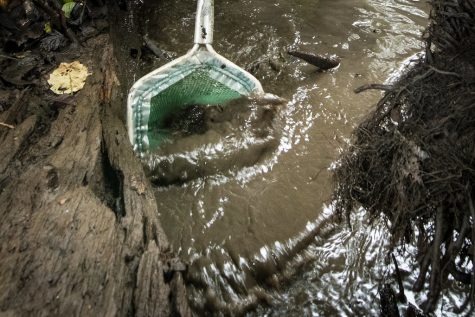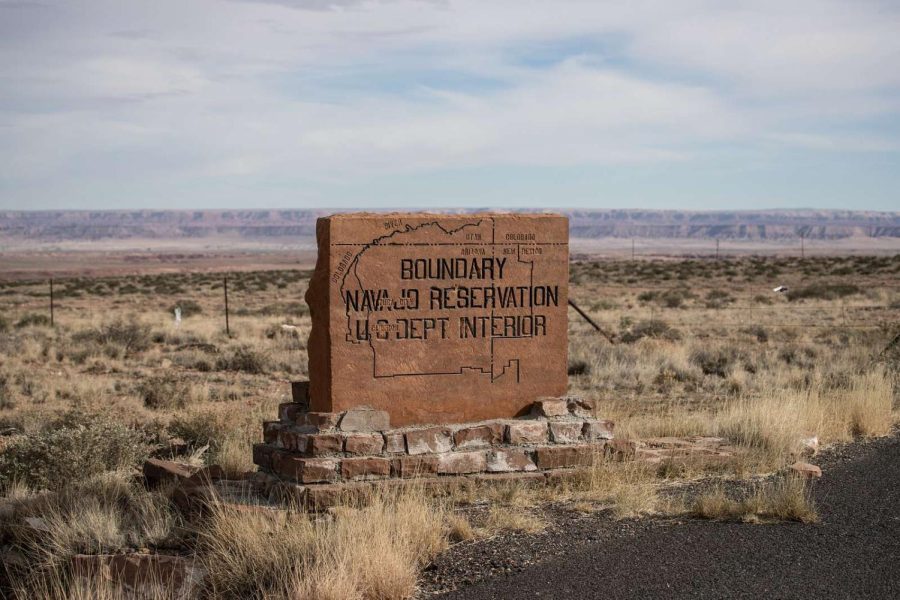Indigenous Communities in the Pandemic
January 19, 2022
Since the start of the pandemic, many pre-existing issues within the United States have been amplified. As the situation changed, the effects of those changes highlighted many present issues within America, making a desire for solutions even more pronounced. The effects of pollution on the environment were more visible, especially as a larger number of the population avoided commuting to school and work. Disparities within populations in the healthcare system became more apparent, creating a greater drive for change. However, some of the issues enhanced by the current pandemic have not captured public attention and, thus, demand
solutions.
It is difficult to imagine surviving the coronavirus pandemic without having access to resources like clean water, healthcare, and the ability to shelter in place with basic necessities during an outbreak. Most of these things are synonymous with life in America. It can be difficult to imagine how a person can comfortably go without resources like clean water throughout their day-to-day life, let alone during a widespread pandemic. Yet this has been the harsh reality of many Native American tribes during the coronavirus pandemic, and these issues do not show any sign of a quick and easy resolution.
Many Indigenous people have grappled with limited access to clean water for a significant amount of time. People living on reservations have been forced to travel long distances in order to have water for washing hands, bathing, cooking, etc. While some may have running water in their homes, this water is not always clean. It is not unheard of for water to be contaminated or turbid enough to instigate a boil order, and issues with contamination are not quickly, if at all, resolved. While reservations were initially promised to provide permanent, liveable land for displaced tribes, water insecurity makes liveability practically impossible.

Not only have people living on reservations been enduring difficulties to acquire a basic necessity, but this issue has left their populations vulnerable to the coronavirus. When traveling long distances to access water, people are forced to stand in line for long amounts of time. This increases the exposure someone may have to the coronavirus, while also making it difficult to isolate (since clean water is a necessity). A limited amount of clean water also complicates a family’s ability to wash their hands and other surfaces in the home, something crucial to staying safe during a pandemic. On top of this, it is often difficult to have access to healthcare on a reservation, making the effects of the pandemic devastating on the Native American population. The Navajo Nation alone had a higher infection rate than all of New York during last May.

The current coronavirus pandemic has amplified the problems plaguing the world today, making the need for solutions more dire than ever. While some organizations have come together to help either install home water systems or deliver clean water to residents of the reservations, there is still more to be done before these issues can be somewhat manageable. Most likely, government funding will be needed to create and maintain water systems. The current water crisis hitting Native American communities throughout the United States must be addressed quickly in order to help prevent greater loss amongst Indigenous people.
Images:
https://live.staticflickr.com/1972/44150213344_c5d4198a60_b.jpg
https://encrypted-
tbn0.gstatic.com/images?q=tbn:ANd9GcRgSwD0qdWUPv9bWBBk75QGkuugqfjXDZdIqeRRIS
RiFXLvmeJW81PH3VY334weZhlSiT8:https://publicdomainvectors.org/photos/hand-washing-
water-tap-publicdomain.jpg&usqp=CAU
https://cdn18.picryl.com/photo/2018/01/01/boundary-marker-of-the-navajo-indian-reservation-
now-called-the-navajo-nation-5125c3-1600.jpg
https://encrypted-
tbn0.gstatic.com/images?q=tbn:ANd9GcQWVqMEX4LRbeaJs8o7_tnYdWR3Sh5PZYRcWTHV
Zxxp4et8nyKThtLP5CscVvB-
IOCdeAA:https://live.staticflickr.com/3079/3348956380_0ed366b5f0_b.jpg&usqp=CAU
Sources:
https://www.theguardian.com/us-news/2021/apr/28/indigenous-americans-drinking-water-
navajo-nation
https://www.kunc.org/environment/2021-04-29/the-pandemic-exposed-the-severe-water-
insecurity-faced-by-southwestern-tribes
https://www.circleofblue.org/2020/world/where-water-is-scarce-on-native-american-reservations-
covid-19-spreads-more-easily/
https://www.ncai.org/policy-issues/land-natural-resources/water
https://factor.niehs.nih.gov/2020/6/feature/1-feature-navajo-contamination/index.htm
https://www.navajowaterproject.org/project-specifics

